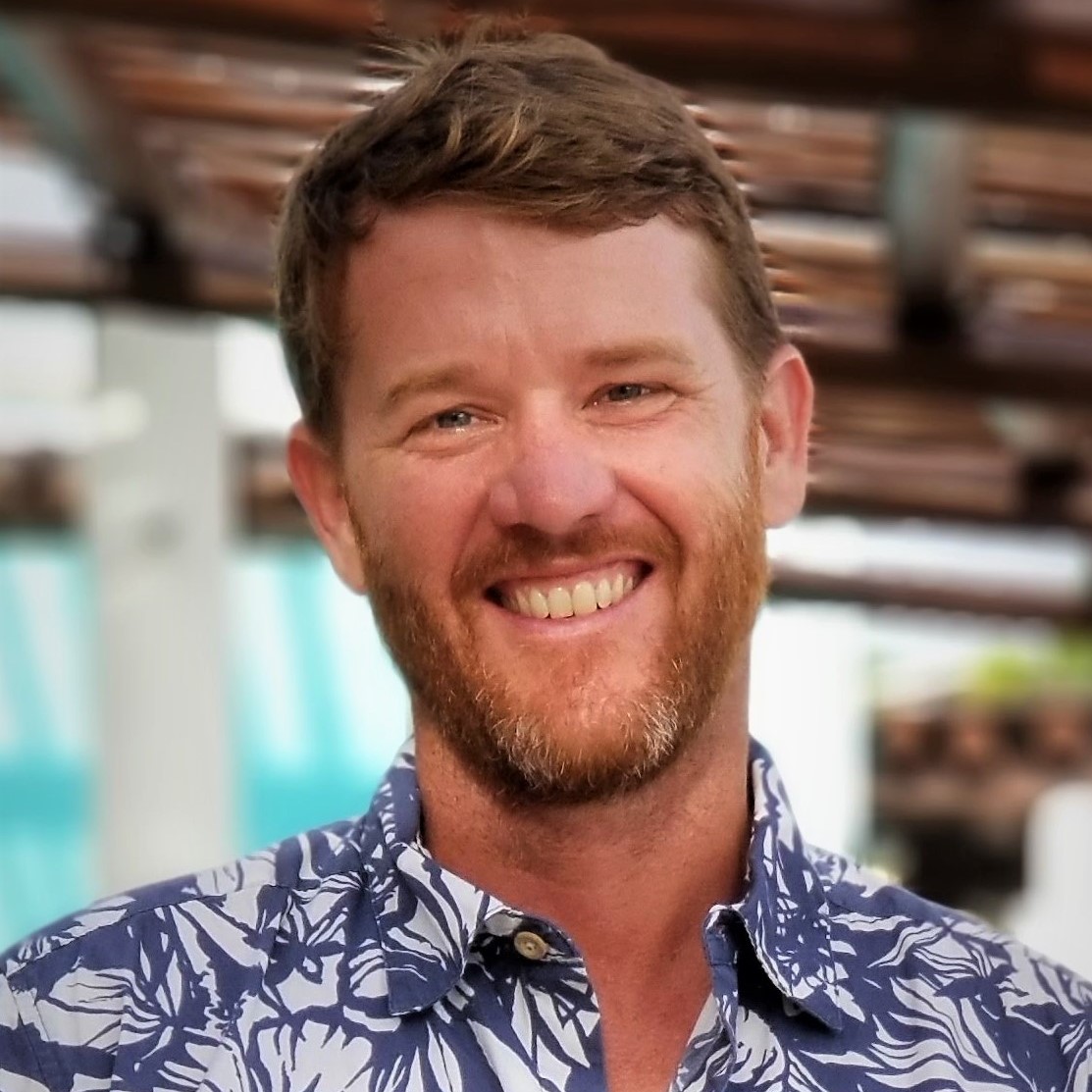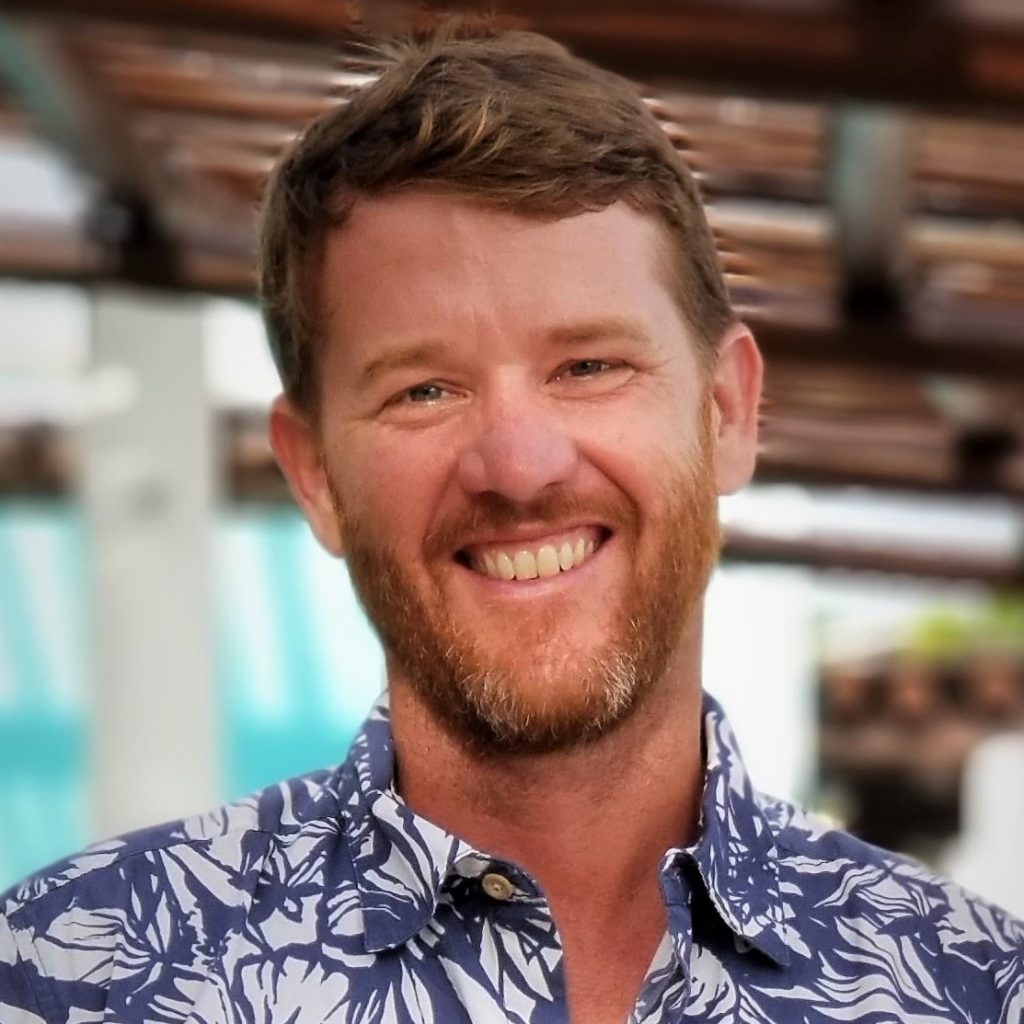Over the course of 2019, I came across a number of people who do absolutely fascinating work in the field of ecosystem building for social change, only they weren’t exactly ecosystem builders in the traditional sense. There was more to conversations with them because in one way or another, they had moved into a position of convening, facilitating and supporting other ecosystem builders. They are, so to speak, meta-ecosystem builders. And because “meta-ecosystem builder” sounds about as sexy as canned soup, and we are excited to introduce you to these thought leaders in our new Thought Leadership Series!
Topher has been convening and connecting people for the purposes of social change for over a decade, starting with co-founding the Highland City Club, a membership community of 300 changemakers in Boulder, Colorado, to managing Dunton Hot Springs, one of North America’s top all-inclusive resorts and retreat centers, to leading Opportunity Collaboration, a global network of several thousand nonprofit leaders, for-profit social entrepreneurs, grant-makers, impact investors, corporates and academics building sustainable solutions to poverty, and finally with Conveners.org, a group of fellow conveners and accelerators in the impact space.
His purpose is to convene and connect nonprofit leaders, for-profit social entrepreneurs, grant-makers, impact investors and all other agents of positive change, thereby building the ecosystem for the social sector and creating greater opportunities for social, environmental and economic justice.
My job is to help people who help everybody else.
How do you work with ecosystem builders?
“I focus my energy on helping people who are there to help everybody else. This shows up in a myriad of ways:
At Conveners, we bring together leaders of social impact gatherings (convenings) such as Skoll World Forum, Global Philanthropy Forum, SOCAP, Aspen Institute, Social Enterprise World Forum, ANDE, Echoing Green, Ashoka, etc. to provide them with the opportunities that they usually provide to others: a space to connect and collaborate with each other as field builders. Our mission is to build capacity for mission-driven leaders and ensure they have a sandbox to play in, the very environment that they usually provide for others.
What gets me out of bed in the morning is the ability to connect the right people at the right time, and to be the weaver of the web in this sector.
Opportunity Collaboration, of which I am CEO, is an annual unconference for leaders who build sustainable solutions to poverty and injustice. During these four days, we focus on building genuine deep connections among participants so they have a greater sense of self and community, and a deeper understanding of how they themselves and their organizations are building the ecosystem. At these unconferences we are fortunate to bring together an incredible array of different types of leaders: for-profit and nonprofit founders, donors and foundations, VCs, angels, wealth advisors, institutional investors, media, representatives of the corporate sector, academia, consultants, and policy advisors. No speeches, panels or power-points; we believe that the most value we can create for such engaged leaders and experts is by providing them with the space for conversation and connection. Our entire model is based on the assumption that everyone is an expert and has something to contribute, to offer and learn from being in deep dialogue.”
What trends have you observed over the last decade?
“In the early years, there was a lot of buzz around micro-finance. It continues to be part of the conversation but complimentary topics around solutions to poverty and a more equitable world have emerged since then. We have seen a rise of conversations about non-profit and for-profit models. For-profit, market-based solutions have a better survival rate in terms of financial sustainability but certain solutions, such as human rights work, are hard, let alone immoral, to monetize.
What we are seeing more and more of is participants’ realization that solutions rest in the very communities we are trying to support. The worst way to conduct impact is for a privileged group to say “here’s how to solve for this”. Instead, we have become more adept at deep listening and working on solutions collaboratively from a sense of solidarity.”
What is a key strength in convening meaningful events for ecosystem builders for social change?
“We are convinced that the best events are truly in service of the people that are participating, not some thin veneer of an underlying marketing initiative of sponsors or funders. At Opportunity Collaboration, we don’t have to scramble for grants or drill a hole into a funder. Thanks to our business model, we can solely focus on people in the room and what questions and challenges they bring with them. We make the convening the platform for the attendees as opposed to a platform for some funding organization’s agenda, hidden or otherwise. The bar we hold ourselves to is to truly listen to what the attendees are hoping to get from the event.”
Where do you see ecosystem builders for social change struggle?
“Surprisingly or not, it’s the lack of funding and the visceral fear that there aren’t enough means to mobilize all of our efforts. However, we are seeing a mainstreaming of the world of impact and sustainability. There are enormous entities and pools of resources waking up to the fact that this is the time to do something. I think we’ll see an unprecedented unleashing of resources for the existing players. The big question is ‘How can we, as ecosystem builders who have been doing this work for the last twenty, thirty years, make sure we link up with this next wave of actors so that we’re not overwhelmed?’ In other words, as the JP Morgans and the Blackrocks and the Business Roundtables of the world say ‘Yes, addressing climate change is now our key investment thesis,” or, “It’s now about stakeholder as opposed to shareholder capitalism,” how do we, as the initial ecosystem builders, ensure this doesn’t become another way to thinly mask what has otherwise been the extractive economic form that got us here in the first place? How do we ensure that the lessons learned from decades of building the sector are imbued in this mainstream wave?
How can we support you in your work?
I’m not perfect. I consider myself fallible and messy. I think for all of us, being in service means we want to be helpful. So my ask to all the other ecosystem builders for social impact and sustainability out there is to please please please do the work around and within yourself. No matter how much we want to be helpful, we first have to make sure that we are in tune with ourselves and our values before we can do it for others. Be it meditation, yoga or checking in with our personal values from time to time. You hold space for others all the time, make sure to hold space for yourself not just every now and then, but regularly.”

Topher Wilkins
Santa Cruz, CA
Opportunity Collaborator and Convener. Rememberer of names. Husband, father, business partner.
